When something’s fishy, what do you do? Most people survey their surroundings as they try to figure out what is giving them an uneasy feeling. If a suspicious situation unfolds, chances are that they start to think outside the box and act in critical ways. Yet trust is important to our everyday lives. It allows society to function normally as we know it. But, there are often legitimate reasons to be distrustful of others. Our decision to trust/distrust others depends on our perceptions of their integrity and competency. For example, do you trust your unemployed neighbor? How about a certified accountant to handle your income tax returns? The answers often depend on our decision to expose our vulnerability to them. To trust others sometimes require us to place ourselves in a position of weakness. For example, when we head out for the day, we trust drivers to abide by traffic regulations, and we trust the police to uphold the laws and enforce safety in our environment.
But how does trust and distrust influence our cognition and behavior? Evidence is accumulating that shows our tendency to trust others and behave in pro-social ways is influenced in part by our genetic code, specifically in the processing of the “love/bonding hormone”, oxytocin. Oxytocin affects bonding with others, social recognition, and maternal behavior. People have a higher tendency to trust others when they have two copies of a gene variation that is involved in the processing of oxytocin.
To investigate this phenomenon, Aleksandr Kogan, at the University of Cambridge (2011), conducted an experiment where he and his colleagues asked people to rate an individual’s trustworthiness, after watching 20-second clips of video subjects listening to their off-screen loved ones talking about a personal painful experience. People who have two copies of this genetic variation rated the person as more trustworthy than those who lacked this type of gene variation.
There appear to be behaviors that signal to us that an individual is trustworthy. Nikolaas Oosterhof, at Dartmouth University, and Alexander Todorov, at Princeton, studied snap judgments of faces. Faces with upturned mouths and wide round eyes cued perceptions of trustworthiness. Faces with downturned mouths and narrow eyes signaled the opposite. David DeSteno, at Northeastern University, discovered four behavioral cues that send a signal to us that an individual may be untrustworthy. These are: (1) leaning away from us, (2) crossing of arms, (3) touching the face and (4) fidgeting with the hands. To confirm that judgments of trustworthiness are solely due to these four actions, DeSteno programmed a robot to mimic these behaviors. The results supported his initial findings. The more frequently the robot performed these four actions, the more likely the robot was judged to be untrustworthy.
From a different perspective, Paul Piff, at the University of California, Berkeley, investigated how wealth affects trust. Participants were told that if they completed a survey, they would be eligible to win points for a monetary reward. In addition, they would be able to play a game with an unknown partner. Before playing the game, the participants were told they would either earn more points and hence more money, or lose all their points. Participants from a lower socioeconomic background were more trusting than their higher socioeconomic counterparts even when age and ethnicity were taken into account. Why might that be? It appears that as people accumulate wealth, they become increasingly self-goal oriented. As a result, these people have less need for trusting relationships with others. In fact, in another study, Piff (2012) found that wealthy people are indeed less trusting of others. What was especially startling was finding that they themselves are less trustworthy than others. “Upper-class” people were more likely to lie and cheat compared to those in a lower socioeconomic class.
Distrust in itself is not necessarily bad. Mayo and colleagues (2008), at Hebrew University, showed how distrust affects our cognition. Skepticism and distrust break us out of our routine flow of thought. Skepticism leads us to think “outside the box”. In fact, Ann-Christin Posten and Thomas Mussweiler, (2013) the University of Cologne, Germany, found that people who were primed in an experiment to distrust others were less likely to succumb to gender and ethnic stereotypes. Distrust signals us to deviate from normality, so that those of us who detect reasons for distrust become extra alert and approach situations with a critical eye. Doing so can actually be adaptive for survival.
References
DeSteno, D., Breazeal, C., Frank, R. H., Pizarro, D., Baumann, J., Dickens, L., Lee, J. J. (2012). Detecting the trustworthiness of novel partners in economic exchange. Psychological Science, 23(12), 1549-1556.
Kogan, A., Saslow, L. R., Impett, E. A., Oveis, C., Keltner, D., Saturn, S. R. (2011). Thin-slicing study of the oxytocin receptor (OXTR) gene and the evaluation and expression of the prosocial disposition. PNAS, 108(48), 19189-19192.
Oosterhof, N. N., & Todorov, A. (2008). The functional basis of face evaluation. PNAS, 105(32), 11087-11092.
Piff, P. K., Kraus, M. W., Côté, S., Cheng, B. H., Keltner, D. (2010). Having less, giving more: The influence of social class on prosocial behavior. Journal of Personality and Social Psychology, 99(5), 771-784.
Piff, P. K., Stancato, D. M., Côté, S., Mendoza-Denton, R., Keltner, D. (2012). Higher social class predicts increased unethical behavior. PNAS, 109(11), 4086-4091.
Posten, A., & Mussweiler, T. (2013). When distrust frees your mind: The stereotype-reducing effects of distrust. Journal of Personality and Social Psychology, 105(4), 567-584.
Schul, Y., Mayo, R., & Burnstein, E. (2008) The value of distrust. Journal of Experimental Social Psychology, 44, 1293-1302.
Featured posts
May 16, 2023
May 16, 2023
May 16, 2023





